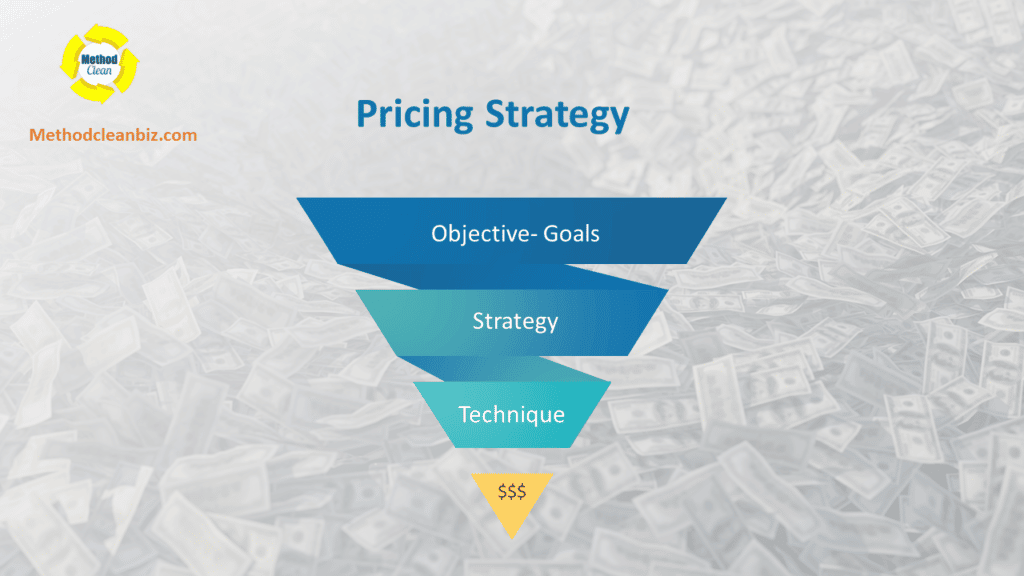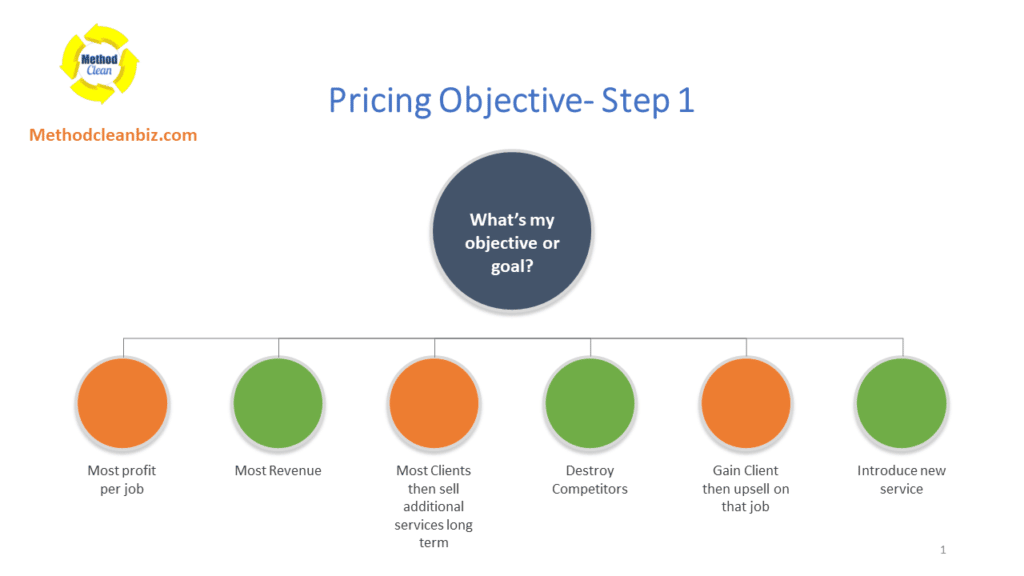Mastering Pricing Leverage: Strategies for Commercial Cleaning Services
In the fast-paced world of commercial cleaning, where service quality, efficiency, and client satisfaction are paramount, understanding the nuances of pricing leverage becomes a strategic imperative. As service providers navigate the intricacies of client demands, industry standards, and the ever-evolving business environment, the mastery of pricing leverage emerges as a transformative force that can redefine success.
This blog is dedicated to peeling back the layers of pricing leverage, offering a comprehensive exploration of its intricacies and underscoring its pivotal role in molding the profitability landscape for commercial cleaning services.
The Significance of Pricing Leverage:
Navigating the Competitive Landscape: In the highly competitive arena of commercial cleaning, where businesses vie for contracts and seek to outshine rivals, pricing leverage acts as a compass. It guides businesses through the complex terrain of service differentiation, client expectations, and market positioning. By understanding and effectively utilizing pricing leverage, commercial cleaning services can not only survive but thrive in a crowded marketplace.
Shaping Profitability: At its core, pricing leverage is more than just a tactical tool for setting service rates; it is a fundamental driver of profitability. This blog delves deep into how strategic pricing decisions can have a cascading effect on the financial health of a commercial cleaning business. From recurring jobs and volume accounts to specialized services and scarcity tactics, each facet of pricing leverage plays a critical role in shaping the bottom line.
To enhance your understanding of pricing leverage in commercial cleaning services, consider exploring the following resources:
“Profit First” by Mike Michalowicz: This book offers insights into financial strategies for businesses, including pricing decisions that contribute to profitability.
Harvard Business Review – “The Psychology of Pricing” Series: HBR’s series on pricing psychology provides valuable insights into the behavioral aspects that influence pricing decisions.
Understanding Pricing Leverage in Commercial Cleaning
Recurring Jobs and Volume Accounts
The intricate dance between meeting client demands and sustaining profit margins places commercial cleaning services at a crossroads. Clients holding recurring jobs or large volume accounts yield significant pricing leverage, anticipating discounts for their ongoing commitment. While fostering long-term partnerships is a goal, challenges arise in maintaining profitability. For instance, ponder the quandary of offering discounts for routine restroom cleaning services, a staple requirement for many clients.
Navigating Competitive Pricing
To thrive amid fierce competition, commercial cleaning services must master the art of strategic pricing. Beyond mere cost considerations, emphasis should be on value-added services and superior quality. By shrewdly positioning their offerings, services can retain a competitive edge without succumbing to the pressure of steep discounts. Offering services that transcend the basics, such as the meticulous color sealing of grout in restrooms, becomes an indispensable element in this strategic maneuvering.
Scarcity in Commercial Cleaning Pricing
Leveraging Scarcity for Rare Jobs and Special Requests
The profound impact of scarcity, a potent psychological factor, manifests when addressing rare jobs and special requests. Janitorial services should discern and strategically wield their pricing leverage in such scenarios. Confronted with unique cleaning requirements like applying special coatings on flooring or meticulously cleaning cubicle panels, scarcity becomes a valuable asset. By positioning these services as exclusive and in high demand, janitorial services can command premium pricing, subsequently enhancing profit margins.
The Role of Specialized Services
The inherent value of specialized services cannot be overstated in the creation of scarcity. Janitorial services can exploit their expertise in unique cleaning requirements, such as the intricate task of warehouse floor cleaning, to bolster pricing leverage. By positioning themselves as industry leaders in specific niches, these services can justify premium pricing, tapping into the perceived scarcity of their specialized skills.
How Industries Other Then Cleaning Apply This Tactic
Sometimes seeing how we buy can be helpful in understanding how something works.
Retail Industry: Limited Edition Products
- Strategy: Retailers create a sense of urgency and exclusivity by releasing limited edition products.
- Example: Sneaker brands like Nike and Adidas often launch limited-edition shoe releases, collaborating with renowned designers or celebrities. These limited runs generate hype, leading to increased demand and premium pricing.
- Source: Forbes – How Brands Use Scarcity To Increase Demand
Technology Industry: Product Launches
- Strategy: Tech companies use scarcity during product launches to create a buzz and drive early sales.
- Example: Apple’s iPhone releases are known for their initial scarcity. Long lines outside stores and high demand for the latest model contribute to a perception of exclusivity.
- Source: Harvard Business Review – Why Scarcity Drives Value in Digital and Physical Markets
Hospitality Industry: Exclusive Packages
- Strategy: Hotels and resorts offer exclusive packages with limited availability to entice customers.
- Example: Luxury resorts may provide limited-time offers for upgraded accommodations or unique experiences, emphasizing scarcity and encouraging bookings.
- Source: Hotel Management – The Science Behind the Scarcity Principle
Fashion Industry: Designer Collections
- Strategy: High-end fashion brands leverage scarcity by releasing limited collections or collaborating with designers.
- Example: Luxury brands like Chanel or Louis Vuitton often collaborate with renowned designers for exclusive collections, creating a sense of rarity and luxury.
- Source: Business of Fashion – The Power of the Limited Edition
Automotive Industry: Limited Edition Models
- Strategy: Car manufacturers produce limited edition models with unique features to attract collectors and enthusiasts.
- Example: Automakers like Ferrari release limited runs of special edition models with enhanced performance or exclusive design elements, creating a scarcity effect.
- Source: Forbes – The Strategic Use of Scarcity by Luxury Brands
Entertainment Industry: Event Tickets
- Strategy: Event organizers create scarcity by offering a limited number of early-bird or VIP tickets.
- Example: Music festivals often release a limited quantity of discounted early-bird tickets, driving fans to purchase tickets well in advance.
- Source: Eventbrite – How to Use Scarcity to Boost Your Event Sales
Real Estate Industry: Exclusive Properties
- Strategy: Developers market certain properties as exclusive or limited, emphasizing their unique features.
- Example: Luxury real estate projects may be marketed as limited opportunities, attracting high-net-worth individuals seeking exclusive residences.
- Source: The Close – How to Use the Scarcity Principle in Real Estate Marketing
Food and Beverage Industry: Seasonal Menus
- Strategy: Restaurants introduce seasonal menus with limited-time offerings to create a sense of urgency.
- Example: Coffee chains may offer seasonal drinks for a limited time, enticing customers to try them before they disappear from the menu.
- Source: Gourmet Marketing – How Scarcity Can Boost Your Restaurant Sales
These examples illustrate how the interplay of pricing leverage and scarcity is a versatile and effective strategy employed across different industries, shaping consumer behavior and driving business success.


